
There are plenty of web browsers available for Linux. A lot of them are based on Chromium but we also have a list of browsers that are not based on Chromium.
Recently, a reader asked for a lightweight web browsers recommendation and hence I took the responsibility of doing some quick experimentation. Here’s what I found.
Lightweight web browsers for Linux
I did not run any benchmark test because what may work on one system may not work on others. This article is based on my experience and opinion.
Another thing to keep in mind is that some lightweight web browsers may have limited extensions. If you rely on features like account synchronization and uses tons of browser extensions, these browsers may not suffice your need. However, you could still try some of them to have as your secondary browser.
One more thing! This is not a ranking list. The browser at number 2 should not be considered better than the one at number 5.
1. Viper
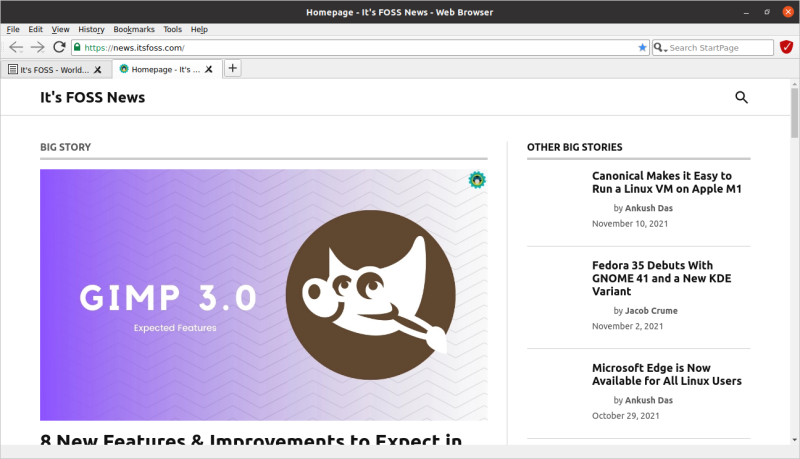
Focusing on privacy, minimalism, and customization, this browser has become a powerful lightweight place where you can do every search you want. It is, in my opinion, an essential navigator with basic features like tab hibernation support, secure AutoFill management, full-screen support, among others.
This is not a regular browser, but if you’re a fan of minimalism, perhaps this one is for you.
2. Nyxt
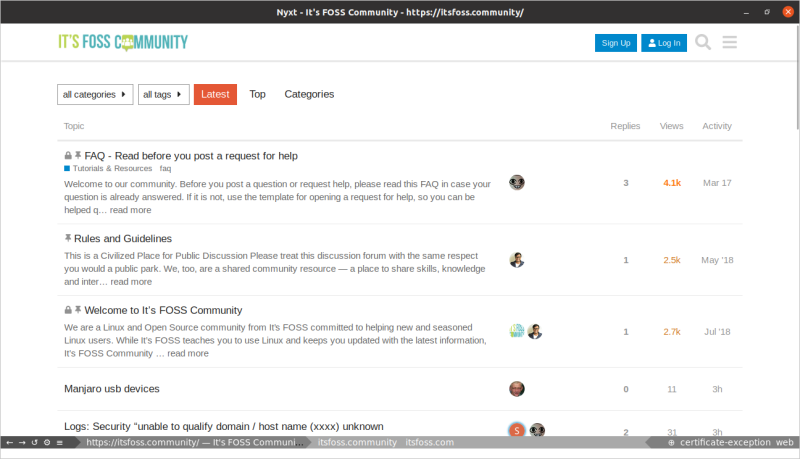
“The hacker’s power-browser” is how the official page of Nyxt describes it; and being honest, it is wonderful.
Even though it is not the only keyboard-oriented web browser around; its unique feature is that you can overwrite and reconfigure every single class, method, and function inside this one. It also has a built-in command line tool. No wonder why it is called “The hacker’s power-browser”.
Nyxt uses a simple computer programming environment that takes single user inputs, executes them, and returns the result to the user; most famous as RELP (read-eval-print loop).
3. Lynx
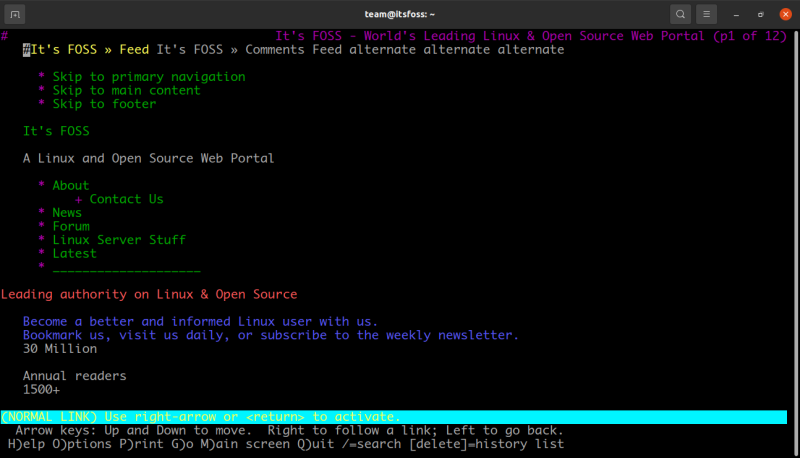
I definitely would say this one is for the CLI fans because this amazing browser lets you surf the internet from your Linux terminal. That’s right! You can easily access the internet by starting it in your terminal.
Of course, it consumes less resources but you should not expect same kind of browsing experience you get from regular browsers like Firefox or Brave.
Did you know this is the oldest web browser still being maintained, having started in 1992?
4. SeaMonkey
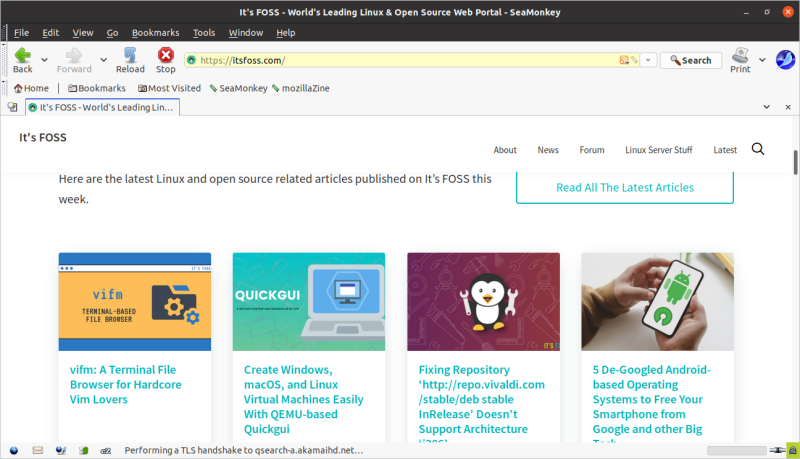
This one is another all-in-one navigator, but what does SeaMonkey include? SeaMonkey adds characteristics like an email client, web feed reader, HTML editor, IRC chat, and web development tools; among other features.
I would say SeaMonkey is an incredible fork of Firefox like Librewolf. It uses much of the same Mozilla Firefox source code, as its web page said.
5. Waterfox
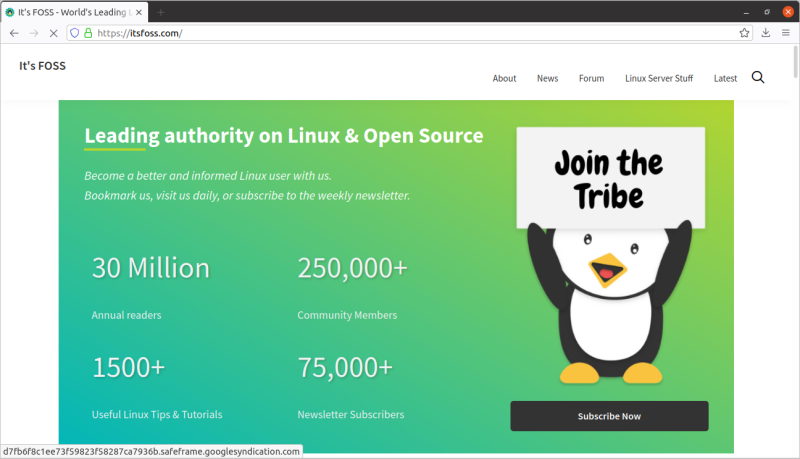
To be honest, when I tried this browser on my personal computer, I was shocked about how good and fast it was. I am a fan of minimalism and I guess that is why I like it so much. One awesome characteristic of this browser is that it supports Chrome, Firefox, and Opera extensions.
So if you are thinking about trying a new fast, and secure browser without leaving your favorite extensions, Waterfox would be a perfect choice.
6. Pale Moon
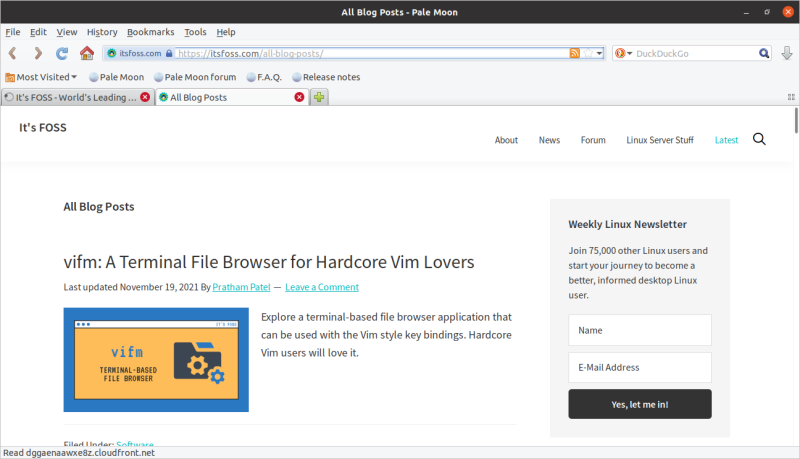
This one is another web browser based on Firefox code with characteristics like privacy, security, fully customizable, and optimized for modern processors. The one feature that looks interesting for me is that it continues supporting NPAPI plugins like Silverlight, Flash, and Java. Plugins that have been unmaintained in other browsers like Chrome and Microsoft Edge.
In this case, if some of your favorite web pages were affected by the stopped maintenance of plugins like flash, perhaps Pale Moon could revive them.
7. Falkon
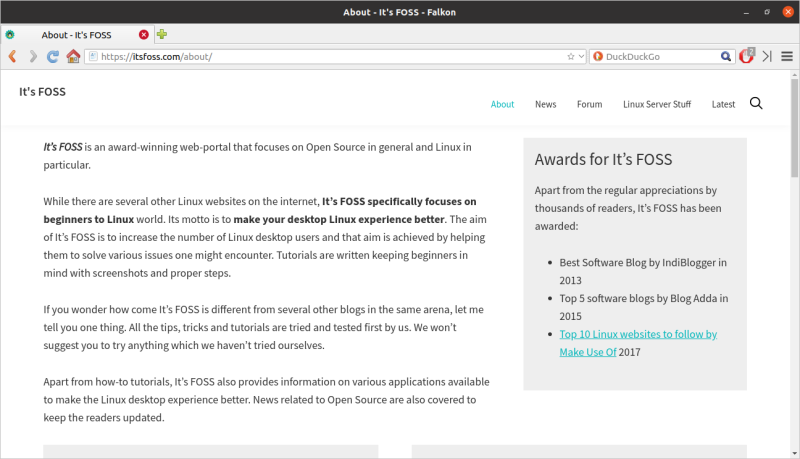
Falkon is a KDE navigator which works with a technology called QtWebEngine which provides a rendering engine. It includes features like bookmarks and history in the sidebar and by default brings an ads blocker; which can help you to prevent tracking from websites.
One random fact about this browser is that it originally started only for educational purposes; but these days, you can use it for your daily routine. I invite you to try it and share with us your experience.
8. Epiphany
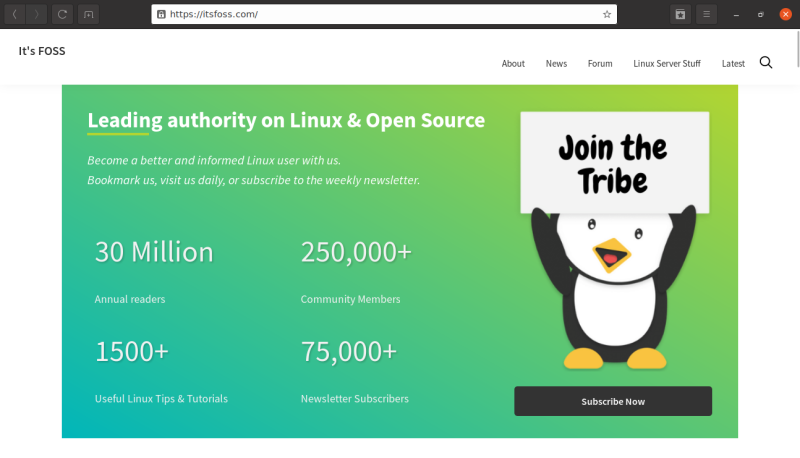
This navigator is most commonly known as GNOME Web, and it is a native web browser focused on Linux experience, which has a simple user interface for browsing. Of course, simple doesn’t mean less powerful.
Its technology to display web pages is similar to the layout engine used in the Mozilla project, and some of its most important features are:
- Customizable user interface
- Availability in more than 60 languages
- Cookie management
- Extensions to execute commands, python scripts, group tabs, select your stylesheet, etc.
If you’re looking for a simple and minimalist browser with is focused specifically on Linux, this is the one.
9. Otter
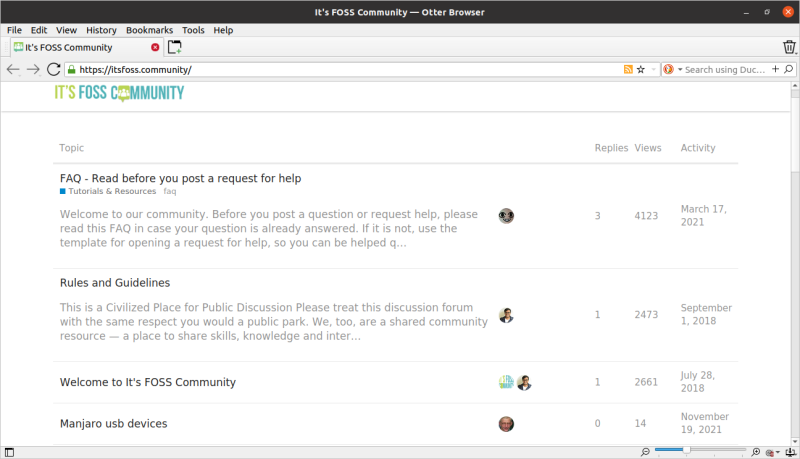
If you remember how Opera 12 used to look like some years ago, this navigator will remind you of this user interface. The principal purpose of this browser is to provide powerful tools for experiment users while they keep browsing.
Something interesting and important that I noticed was the continued commitment to the source code from the community to improve this browser.
This one is a good option if you are looking for a fast, secure, and robust one at the time of browsing in Linux.
10. Midori Web Browser
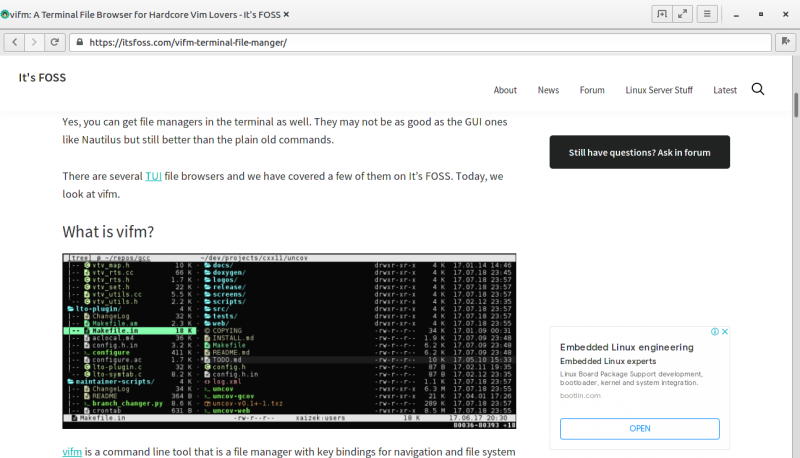
There used to be a popular browser called Midori but its development has changed course after its merger with Astian project. However, you can still install it on your Linux distro thanks to the snap store.
Its three most powerful features are:
- Adblock filter list support.
- Private browsing.
- Manage cookies and scripts.
But something that really got me shocked was that it lets you open 1000 tabs instantly and create easy web apps; these last two facts are according to its page in Snapcraft.
Conclusion
Remember, finding the perfect browser will depend on your necessities and resources. Overall, it all comes down to what suits you.
Using lightweight applications is one way to have a better computing experience when your system is low on the hardware side.
I have avoided some other browsers like Brave or Vivaldi because my focus was on less popular, lightweight web browsers on Linux. If you know a few more that you use regularly, please mention them in the comment section.
If this article was interesting and helpful for you, please take a minute to share it on social media; you can make a difference!


